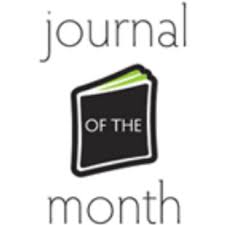
Today’s guest post is by Jenn Scheck-Kahn, founder of Journal of the Month.
Literary magazines, also called literary journals or lit mags, are devoted to short-form creative writing. What distinguishes them is what they publish (a single genre or a mix of genres), how often they publish (annually, biannually, quarterly, monthly), and their medium of publication (print only, online only, combination of print and online).
Some magazines are affiliated with universities, giving them the security of funding and editorial or production staff culled from professors or students. Others are independently funded by individuals or grants. But what they have in common is their mission: publish the best writing of today. They are a labor of love, intending to gather our cultural milieu in the forms of prose, pictures and poetry with little concern for financial or commercial payback. Competitive as they are to get into, they represent a publishing milestone for literary writers in particular.
With over 600 literary journals in print and countless more online, how do you find the good ones? How do you know when to submit to them and once you have, how do you track your submissions and interpret the responses you receive? Here is a list of resources that will guide your process. Many of the resources below could fall in several of the groupings I’ve provided, but I’ve placed them in the section based on what they do best or their most unique service.
Identifying the Best Lit Mags for Your Writing
Affinity is a two-way street: The magazines most open to your writing are the magazines that publish writing that’s similar to yours and writing that you admire. How do you find what you like? Start with a service that curates writing from the best publications. That way, you begin with a known quantity of quality:
- Journal of the Month is a subscription service that sends an assortment of esteemed, current, print literary magazines on a regular basis to your mailbox.
- Literary Hub is a free culture website that aggregates essays, stories, and poems available through online literary and mainstream magazines alongside the writing they host.
Once you’ve found a set of magazines you like, learn more about them by reading reviews:
- The Review Review is a free site that reviews literary magazines as well as publishes articles on current literary happenings and trends, editors interviews, and classifieds. Sign up for their free newsletter to stay up-to-date with lit mag news.
- New Pages is a free comprehensive resource that includes descriptions, reviews, and submissions calls for literary magazines, and other small publications.
Finding Magazines Open for Submissions
At the same time you’re familiarizing yourself with the little magazine scene and homing in on new favorites, put yourself in the path of blasts that will inform you about open submission markets:
- Literistic sends a monthly newsletter tailored to your writing with contest, general submission, and fellowship deadlines. A free version is also available.
- CRWROPPS-P is a twitter hashtag as well as a Yahoo group that sends information about open submission periods as well as teaching jobs and conference pitches.
Visit these websites with listings of literary magazines that include submission guidelines and deadlines:
- Poets & Writers Magazine, in addition to publishing, bimonthly, the print magazine of record about industry and craft trends, provides a free website that includes a database of literary magazines.
- A literary magazine called Entropy assembles a free list of target markets on a seasonal basis.
Tracking Submissions
When you launch yourself into the business of submitting to magazines, tracking where you’ve sent your writing and the responses you receive can feel like a daunting task. Keep organized by using a spreadsheet of your making or consider these options:
- Duotrope is a data warehouse of literary magazine information where writers can track their own submissions and compare their statistics to others to see, for example, how long a given magazine tends to respond to submissions they ultimately accept. Know that because the data is provided by other writers, not the magazines directly, it’s not comprehensive and unlikely to be precise.
- Similar to Duotrope, The Grinder is a site for the data junkie that shares writer-provided submission statistics, but it’s free and includes graphs. Currently it pulls from a smaller data set than Duotrope.
Evaluating Responses
Not all magazine responses mean the same thing, especially when they aren’t accepting your writing. A tiered system of rejections communicates how far along your manuscript traveled in the process, which lets you know

how much it was appreciated by the staff and whether that staff is actively welcoming more of your writing in the future. The tricky part is deciphering the tiers of responses, especially given that there’s no standard language or format across magazines. Rejection wiki decodes the tiers for you by magazine.
Note from Jane: Currently Journal of the Month and Poets & Writers magazine are teaming up for the holidays: a subscription to Journal of the Month qualifies you for up to 75% off a Poets & Writers subscription. See Journal of the Month for details.
Jenn Scheck-Kahn is a writer, instructor, and the founder of Journal of the Month. Her prose has appeared in Creative Nonfiction and Poets & Writers Magazine, among other literary magazines and placed in contests hosted by The Atlantic and Glimmer Train.

And some conspicuous omissions: The Pushcart Prize, Best of the Net, O’Henry Prize Stories, Best American Non-Required Reading, Best American Short Stories and Best American Essays (etc.). All basic guides to the variety and quality of contemporary writing and where it is published. Also see http://perpetualfolly.com/
For those looking for Perpetual Folly, here is the correct link:
https://cliffordgarstang.com/2018-perpetual-folly-literary-magazine-ranking-fiction/
Also: https://cliffordgarstang.com/2019-literary-magazine-rankings/
As for additional news on magazines and journals that are open for submissions (and don’t charge sub fees, AND pay writers for their work), writers might want to check out the monthly Practicing Writer newsletter (http://bit.ly/2thumkv) and weekly “Monday Markets” posts on the Practicing Writing blog (http://bit.ly/2xhVs0i). And for tips on assessing journals as potential homes for your work, consult this article: https://lithub.com/13-questions-to-ask-before-submitting-to-a-literary-journal/.
Much appreciate the tips – thank you!
Thanks for sharing this! I think I will be needing some of these as a resources
These are some great resources! I use all of them in one way or another. And I second the additional resources shared in these comments. If your focus is on poetry, I offer interviews with editors and no fee submission calls on my blog as well–https://trishhopkinson.com/ and you can follow along via email, Facebook, or Twitter.
[…] you are a writer looking for literary magazine outlets, Jenn Scheck-Kahn has a list of literary magazine resources, while John Sibley Williams lays out how to balance your submission budget for literary […]